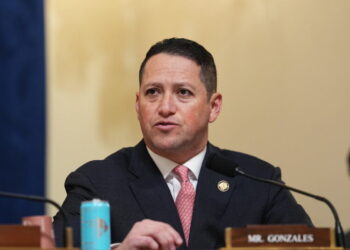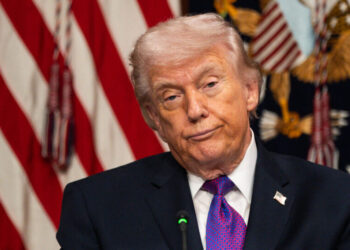House Republicans Tell Gonzales to Quit Re-Election Campaign
House Republican leaders on Thursday called on Representative Tony Gonzales of Texas to suspend his re-election campaign after he admitted...
The Eye-Watering Multibillion-Dollar Cost of Trump’s War Revealed
The Trump administration’s war in Iran is reportedly costing American taxpayers $1 billion a day—meaning the overall total could top...
Trump Group Accused of Plotting to Hijack America’s Birthday for Major Grift
A Trump-aligned group set up by the White House to apparently glorify the president is setting off alarm bells among...
‘Protector’ Review: She Knows How to Give Life, and How to Take It
Imagine a feminist spin on “Taken,” this time with a mother in the driver’s seat. “Protector,” directed by Adrian Grunberg,...
Salesforce CEO says Block’s cuts shouldn’t fuel worries of mass layoffs: ‘That company has its own unique issues’
Salesforce CEO Marc Benioff says up to 50% of his company's work is now being performed by AI. Really? Brontë...
Europe commits to expanding Iran campaign as Israel strikes southern Lebanon
WASHINGTON — New signs of a widening regional conflict emerged Thursday as the war with Iran entered its sixth day, with European...
The absurdity of imprisoning parents for their children’s crimes
The guilty verdict Tuesday in the murder-by-proxy trial of a father whose son is accused of killing four people in...
Trump Kennedy Center Goon Loses It at Insufficiently MAGA CBS Show
Sidelined President Donald Trump loyalist and Kennedy Center boss Richard Grenell is spending his days shouting at social media. Grenell,...
‘CBS Mornings’ Producer Bails as Trumpy Boss Seeks MAGA Host
A top CBS Mornings producer is leaving the program—a development that comes as CBS News boss Bari Weiss is reportedly...
Senator Helps Officers Forcibly Remove Protesting Veteran From Hearing
Senator Tim Sheehy, Republican of Montana, helped Capitol Police officers forcibly remove an antiwar protester from a Senate hearing on...














